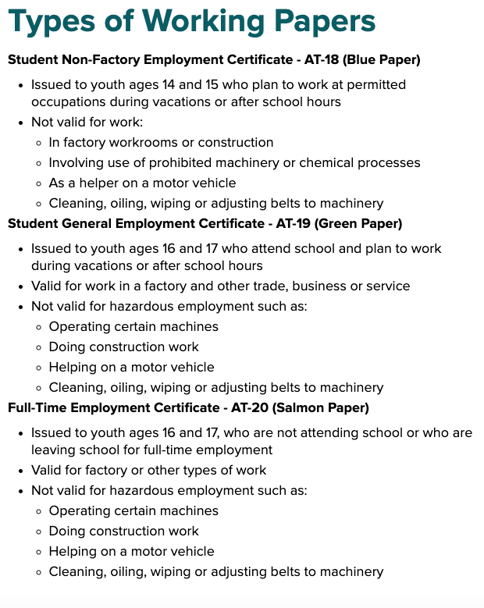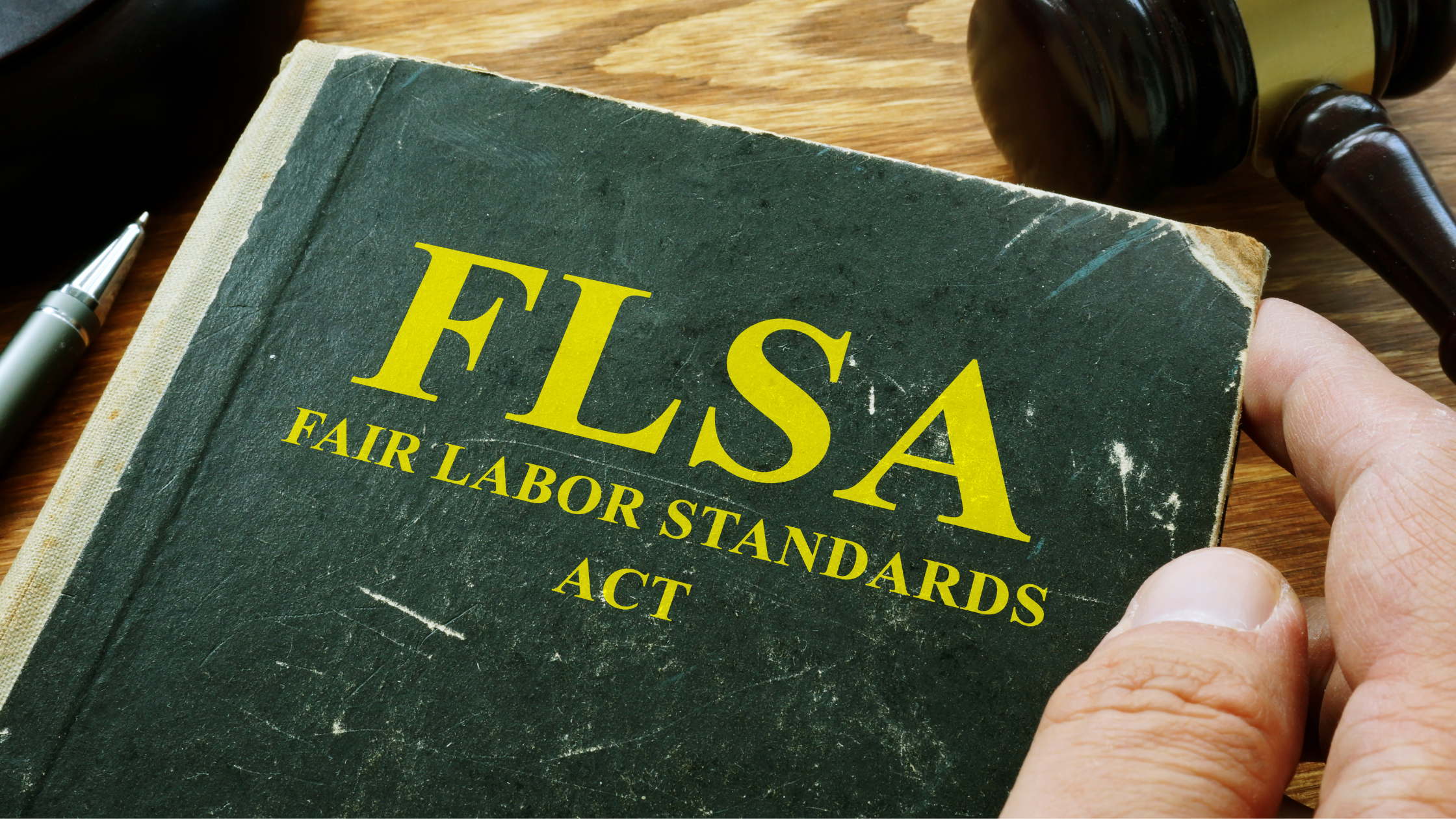Children in the United States are protected by child labor laws to ensure fair and appropriate treatment with uninterrupted access to their education.
From minimum age requirements, to regulating working hours and hazardous tasks, child labor laws promote a safe and supportive environment for young workers.
Understanding these regulations is crucial for employers and parents to understand in order to protect children.
In this blog post we will discuss the federal, New York, and New Jersey laws around hiring minors and the jobs they are able to partake in.
Federal Child Labor Laws
The child labor laws have been authorized by the Fair Labor Standards Act of 1938 (FLSA) to ensure safe working conditions for children that do not jeopardize their health, well-being, or opportunity for education.
Federal Age Restrictions
There are different rules around agricultural and non-agricultural jobs for minors.
For agricultural jobs, if a child is under 12, they can work outside of school hours in any non-hazardous job on a small farm. So long as they have parental consent and the farm is exempt from the federal minimum wage provision. Once 16, the child can work at any farm.
If you want to hire a minor under the age of 18 for a non-agricultural job, there are different restrictions based on age.
- If you are a parent who owns a business, you can employ your child under 14 at your business, so long as it is not considered one of the 17 hazardous jobs.
- Children under 14 can also deliver newspapers, perform in movies & theater, or babysit.
- Once the minor turns 14, they are able to work retail, contribute to creative work, partake in delivery services (by foot or public transportation), dispensing gas or washing cars, as well as packing, shelving, and stocking items.
- Any child 15 and under should only work outside of school hours, with a limitation of 3 hours on a school day and not more than 18 hours a week when school is in session.
When school is not in session, the limit is 8 hours per day, but no more than 40 hours per week.
- Upon the child’s 16th birthday, they can begin to work unlimited hours in any occupation that is not included in the 17 hazardous jobs.
- When reaching 18 years of age, you can employ them at any job at any time federally. But please remember to check your state’s work laws to stay compliant.
You can find a complete guidance of these labor laws by visiting the YouthRules division on the U.S. Department of Labor’s website.
It’s important to understand that your state laws may be different from the FLSA laws.
Below we’ll get into the restrictions and requirements for minors who wish to work in New York and New Jersey.
New York Child Labor Laws
In New York State, the minimum age for employment is typically 14. However, there are certain exceptions and restrictions.
Restrictions and Working Hours
New York State prohibits minors under 18 from working in hazardous occupations like mining, operating machinery, manufacturing, construction, and jobs that involve chemical exposure.
During the school year, minors who are enrolled in school have restricted working hours.
Ages 14-15:
- No more than 18 hours per week
- No more than 3 hours on school days (after school)
- No more than 8 hours on non-school days
- No more than 6 days per week
- No earlier than 7am or later than 7pm (summer days this extends to 9pm)
Ages 16-17:
- Less restrictions, but cannot work during school hours
- May not work more than 48 hours a week when school is not in session
Working Papers
In order to hold a job in New York State, children aged 14-17 must obtain working papers.

Image from New York State Department of Labor’s website.
Children can get an application for working papers from their guidance office at school or a school nearby. A guardian will need to sign the application to be submitted back to the school’s guidance office.
You can read all about the Laws Governing the Employment of Minors for New York here.
New Jersey Child Labor Laws
New Jersey's laws for children are very similar to New York's. One major difference is in New Jersey, teens no longer need parental consent to obtain work permit.
Restrictions and Working Hours
Minors may not work:
- More than 8 hours per day
- More than 6 consecutive days per week
- More than 40 hours per week
Under 16 cannot work before 7am or after 7pm during the school year; however, with a parent’s written permission, they may work until 9pm in a supermarket, restaurant, or retail store.
When they are not in school, 16-17 year olds are able to work up to 50 hours per week.
Ages 16-18 cannot work between 11pm and 6pm.
Similar to the FLSA laws and New York Child Labor Laws, minors are prohibited from working in certain industries and dangerous equipment.
Employment Certificates
Referred to as work permits, employment certificates are mandatory in New Jersey for minors under 18. This needs to be presented to you as an employer before a minor is hired.
These can be obtained through a school’s guidance office or by submitting an application online. The online application is a new process as of June 1, 2023.
You can read all about New Jersey’s Labor Laws for Young Workers here.
Conclusion
Child labor laws are extremely important for the protection and well-being of children. They aim to safeguard their physical, mental, and emotional development and ensure they have access to education, rest, and a safe environment.
These laws prevent children from exploitation, dangerous working conditions, and the interference with the child’s rights to learn and enjoy their childhood.
By enforcing child labor laws, you can help create a foundation for a brighter future where every child can thrive and reach their full potential!
 Meet the platform.
Meet the platform.






